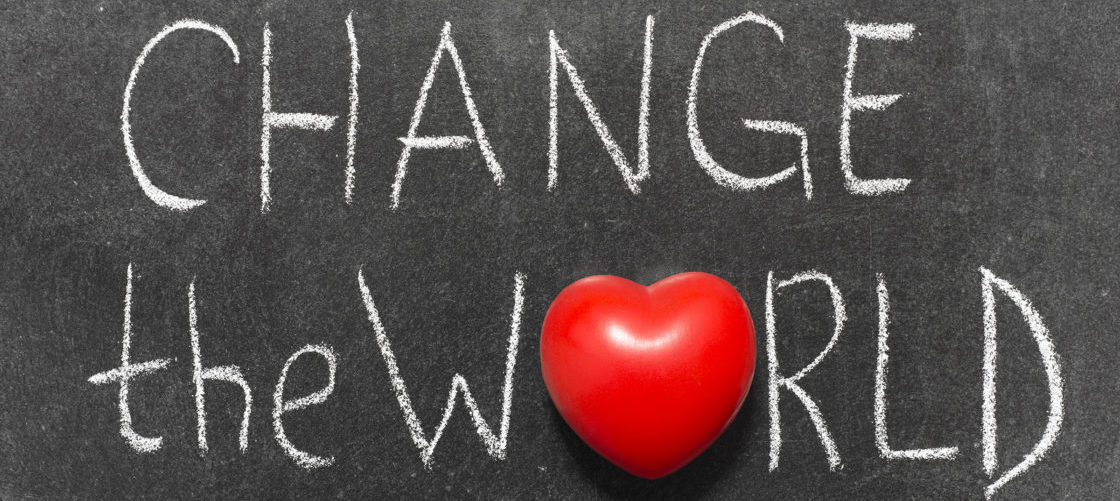“If not us, then who? If not now, then when?”
This famous line is paraphrased from the words of Hillel the Elder, a Jewish Rabbi from the 1st century B.C.E., over 2,000 years ago. But it’s message is truer today than ever before.
While rapid increases in technology have improved quality of life drastically for many around the world, the future doesn’t look rosy. We face a world with aging populations, fewer children to care for the elderly and support government programs and an under-employed workforce struggling with the long-term impacts of automation and artificial intelligence. A situation that when carefully considered forces many to ask, “What comes next?”
Well, we have to take our futures, and our children’s futures, into our own hands.
Elections, Profits And The Problems With Incentive
The issues that face the world today are vast. Righting the ship requires making significant changes in policy and belief. But, unfortunately, those best positioned to implement massive change aren’t incentivized to do so.
 Democracies around the world are run by individuals who, to protect their own careers and families, think election-to-election. While they may discuss leaving lasting legacies, they also know the realities of their jobs. Any platform built on higher taxes or a necessity to develop needed programs would sink a candidate in the polls before they even got down from the podium.
Democracies around the world are run by individuals who, to protect their own careers and families, think election-to-election. While they may discuss leaving lasting legacies, they also know the realities of their jobs. Any platform built on higher taxes or a necessity to develop needed programs would sink a candidate in the polls before they even got down from the podium.
So, instead, politicians stick to platforms that please voters today. Often shifting the burden of future problems onto the shoulders of future generations.
Similarly, corporations have to please shareholders in the present. Take, for example, a mining company that announces the implementation of a new technology to protect clean water around their facilities. It’s expensive and not required by local environmental laws, but the CEO is proud to preserve the world’s natural resources for the next generation. What do you think happens to the company’s share price?
Most likely, investors hear declining profit margins, sell the stock and soon the Board of Directors is pressuring the CEO to cancel his project or lose his job. What choice do you expect him to make?
Democracy and capitalism are both wholly focused on the present. Or, at most, the next five years.
Only individuals like you and I can change the incentive. By taking action to demand change today, we can collectively make the future a right-now problem for politicians, corporations and institutions.
Putting The Future Ahead Of Ourselves
To create change, let’s shift the focus off ourselves and into the future. As a community, we need to look forward through the eyes of those who will come after us. Are our actions today leaving a better world for them?
 Operating against our own present needs is a challenging practice. Particularly as capitalist societies continually push us to maximize our consumption. Telling us that to do anything else is irrational.
Operating against our own present needs is a challenging practice. Particularly as capitalist societies continually push us to maximize our consumption. Telling us that to do anything else is irrational.
But protecting one’s offspring is a powerful, natural force as well. By framing your “irrational” behavior around benefiting your children, change is far easier.
Choose products that protect the environment, even if they cost a little extra. Support companies and political candidates that demand fair wages and offer job training to prepare a workforce for a more automated, global economy. Vote with your wallet and with your feet.
But, possibly most importantly, work to advance financial literacy and security in your community and at home.
Financial Wellness Opens Doors
Money is the root of many of the disincentives causing actions that negatively impact our world. But money can also be the path out.
 Achieving Financial Freedom removes you from the work-earn-consume cycle and allows you to commit time and resources towards positive change. By Protecting Yourself and your children from uncertainty, you give yourself the stability to consider the needs of your neighbor.
Achieving Financial Freedom removes you from the work-earn-consume cycle and allows you to commit time and resources towards positive change. By Protecting Yourself and your children from uncertainty, you give yourself the stability to consider the needs of your neighbor.
If we wish to work together to change the world, we need the power to look beyond the next paycheck. Global citizens struggling with Chronic Money Stress can’t be asked to make decisions that negatively impact their already difficult present.
By working to improve financial literacy and empower better economic outcomes, we create a stronger base to genuinely demand change.
Be A Tiny Ripple Of Hope
In 1966, Robert F. Kennedy was asked by an anti-apartheid student group in South Africa to speak at the annual Day of Affirmation. He traveled to South Africa for four days, giving numerous speeches, interacting with and inspiring people of all races. In his Day of Affirmation Address, he said:
“Each time a person stands up for an ideal, or acts to improve the lot of others, or strikes out against injustice, he sends forth a tiny ripple of hope, and crossing each other from a million different centers of energy and daring, those ripples build a current that can sweep down the mightiest walls of oppression and resistance.”
For the benefit of our children and our children’s children, take every opportunity to be a tiny ripple of hope. Because change, in its grandest and most potent forms, starts with us. With tiny acts that together make great waves.
The views and opinions expressed are those of the guest author and do not necessarily reflect the views and opinions of MindShift.money.
image credit: Bigstock/Yury Zap
Chelsea Brennan is a former Wall Street financial analyst and investment manager who changed gears in her career to chase her passion of improving financial literacy and independence. She is now a personal finance writer and content marketer. Chelsea shares her obsession with budgeting, investing, and raising financially smart kids at MamaFishSaves.com.
